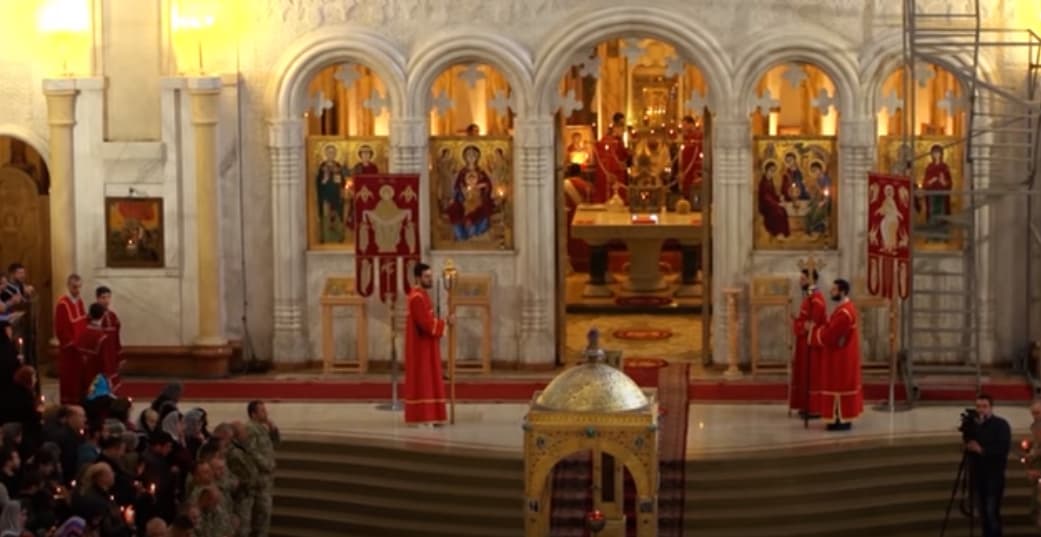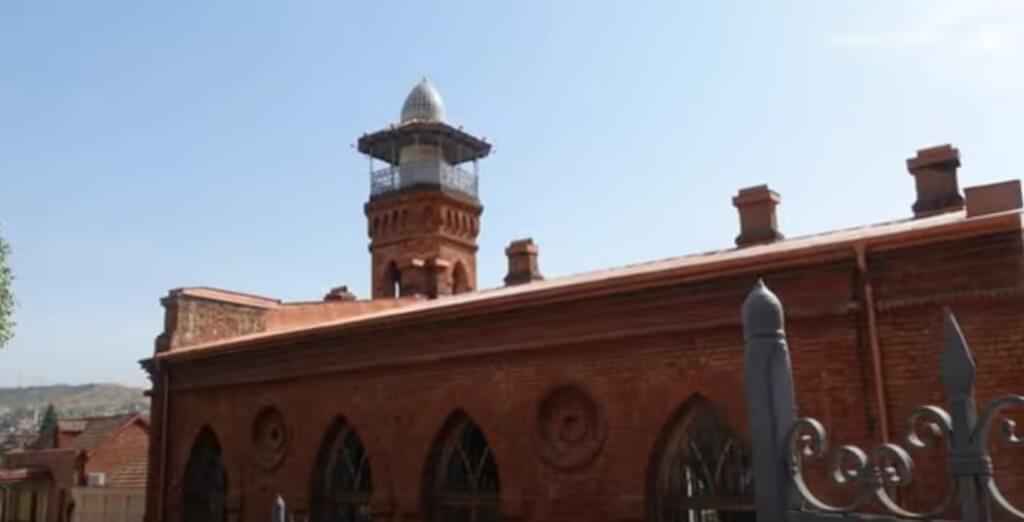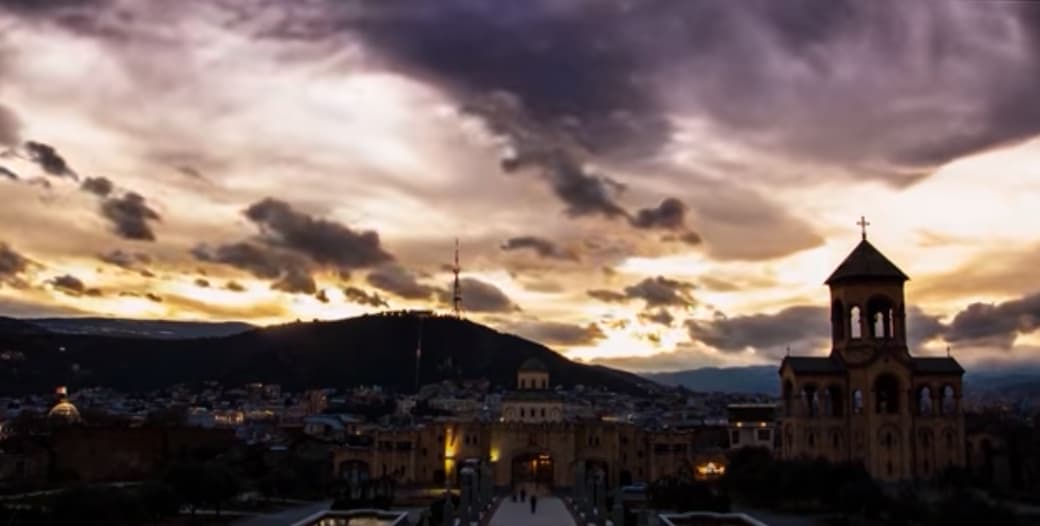Georgia, a beautiful country located between Europe and Asia, boasts a rich history and vibrant cultural heritage. From its stunning scenery to its hospitable people, the country offers a unique blend of traditions and customs. Religion has played an important role in shaping the country’s identity, and Georgia is home to many religious communities. In this article, we will look at the religious composition of Georgia and examine the percentage of different faiths practiced by its population.
Orthodox Christianity: The Dominant Faith
Orthodox Christianity is prominent as the dominant religion in Georgia. The Georgian Orthodox Church, the autocephalous Eastern Orthodox Church, has been the country’s national church for centuries. It is estimated that about 85 percent of Georgia’s population identifies themselves as Orthodox Christians. The church plays a crucial role in Georgian society, being both a spiritual and cultural institution. Its traditions, rituals, and architecture have had a profound impact on the country’s cultural heritage.

Orthodox Christianity occupies an important place in the religious and cultural landscape of Georgia. The Georgian Orthodox Church, also known as the Apostolic Autocephalous Orthodox Church of Georgia, is one of the oldest Christian churches in the world. Here are some key aspects of Orthodox Christianity in Georgia:
- Historical significance: Christianity was introduced to Georgia in the 4th century AD through the missionary efforts of St. Nino, who is widely revered as the educator of the Georgian people. The adoption of Christianity as the state religion in the 4th century played a crucial role in shaping Georgian history, culture, and identity;
- Spiritual and cultural institution: The Georgian Orthodox Church is not only a religious institution but also an integral part of the cultural fabric of the country. Its influence extends beyond religious practice and encompasses various aspects of Georgian life, including art, architecture, music, literature, and traditional customs;
- Liturgical tradition: Georgian Orthodox worship follows ancient liturgical traditions dating back centuries. The Divine Liturgy, conducted in Georgian, combines hymns, chants, incense, and rituals that create a solemn and spiritually enriching experience for the faithful;
- Sacred sites: Georgia is famous for its many churches, monasteries, and cathedrals that are scattered throughout the country. These architectural wonders exhibit characteristic Georgian church design, characterized by rich frescoes, intricate stone carvings, and beautiful iconography;
- Pilgrimage Sites: Georgia boasts several revered pilgrimage sites associated with Orthodox Christianity. One such place is the Svetitskhoveli Cathedral in Mtskheta, a UNESCO World Heritage Site and the spiritual heart of the Georgian Orthodox Church. Another important pilgrimage site is the David Gareja cave monastery complex, known for its breathtaking nature and spiritual significance;
- Religious festivals: Georgia celebrates various religious festivals and holidays that are important to Orthodox Christians. Easter (known as “Easter of the Resurrection” or “Pascha” in Georgian) is the most significant and widely celebrated holiday, celebrated with religious services, processions, feasts, and the exchange of Easter eggs;
- Influence on society: The Georgian Orthodox Church continues to influence social issues in Georgia. It plays a role in moral leadership, education, charitable activities, and social initiatives. The church maintains close ties with the government and frequently participates in national events and ceremonies.
Orthodox Christianity is deeply rooted in the hearts and minds of the Georgian people, fostering a sense of unity, cultural identity, and spiritual devotion. The rich traditions and historical significance of this religion make it an important element of the country’s religious and cultural heritage.
Islam: A Significant Minority

Although Orthodox Christianity predominates in Georgia, Islam also occupies a significant place. There are various Muslim communities in the country, mainly concentrated in the regions of Adjara and Kvemo Kartli. Most Georgian Muslims belong to the Sunni branch of Islam. They constitute about 10% of the population of the country. Historically Georgia has maintained a tradition of religious tolerance, which allows for the coexistence of several confessions.
Minority Religions: A Tapestry of Beliefs
In addition to Orthodox Christianity and Islam, Georgia is home to many religious minorities. The Armenian Apostolic Church, which has roots in neighboring Armenia, represents a significant Christian community in Georgia, accounting for about 3% of the population. In addition to the Roman Catholic Church, Protestant denominations and the Jewish communities contribute to the country’s religious tapestry.
The Catholic Church has a small but loyal congregation, mostly composed of ethnic minorities and expatriates. Protestants, including the Evangelical, Baptist, and Pentecostal denominations, have gained prominence in recent years and are attracting a growing number of followers. The Jewish community, although relatively small, has a rich, centuries-long history in Georgia.

Other religious groups, including followers of the Bahai faith, Krishna Consciousness, and various pagan and indigenous traditions, also contribute to Georgia’s religious diversity. These minority communities, while small in number, enrich the cultural mosaic of the country and contribute to religious pluralism.
Conclusion
Georgia’s religious landscape is a vibrant tapestry of faiths, reflecting the country’s long history of religious coexistence and tolerance. Although Orthodox Christianity dominates, Islam and other minority religions have played a significant role in shaping Georgia’s cultural identity. The Georgian Orthodox Church, with its centuries-old traditions and architecture, remains a pillar of the country’s spiritual and cultural heritage.
The recognition and acceptance of different religious communities contribute to Georgia’s reputation as a harmonious and inclusive society. This atmosphere of tolerance fosters a sense of unity among Georgians regardless of their religious affiliation. Maintaining religious diversity is a testament to Georgia’s commitment to basic human rights and to strengthening social cohesion.
As Georgia continues to evolve in the modern world, its religious landscape will inevitably adapt and change. However, the rich tapestry of religions that currently coexist within its borders will undoubtedly continue to shape and define the country’s cultural identity, making Georgia an interesting place for those interested in exploring the relationship between religion, history, and society.
In conclusion, Georgia’s religious makeup represents a mosaic of beliefs reflecting the country’s cultural heritage and commitment to religious pluralism.


No Responses